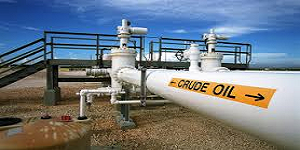
Crude oil is refined to produce a variety of essential products. Crude Oil products are fuels and other petrochemicals that are refined from crude oil. Crude oil products are the various substances and materials derived from crude oil through refining and processing. These products serve numerous industries and everyday applications.

THE MAIN PRODUCTS DERIVED FROM CRUDE OIL PRODUCTS AND THE ENVIRONMENTAL CONSIDERATION OF CRUDE OIL PRODUCTS
Gasoline:
– Widely used as fuel for vehicles.
– Formulated for optimal combustion in gasoline engines.
Diesel Fuel:
– Heavier than gasoline and used in diesel engines.
– Commonly utilized in trucks, buses, and machinery.
Jet Fuel:
– A refined form of kerosene used in aviation.
– Designed to perform well at high altitudes and temperatures.
Kerosene:
– Used for heating, lighting, and as a fuel for jet engines.
– Commonly found in lamps and portable stoves.
Lubricating Oils:
– Reduce friction in engines and machinery.
– Essential for extending the life of mechanical components.
Asphalt:
– Thick and sticky, primarily used in road construction and roofing.
– Produced from the residuals of crude oil after lighter products are extracted.
Chemical Feedstocks:
– Key raw materials for the chemical industry.
– Used to produce plastics, synthetic fibers, and other chemicals.
Heating Oil:
– Used for residential and commercial heating.
– Similar to diesel but formulated for furnaces and boilers.
Natural Gas Liquids (NGLs):
– Includes ethane, propane, and butane.\
– Used for heating, cooking, and as petrochemical feedstocks.
Fuel Oils:
– Heavier oils used in power generation and heavy equipment.
– Common in ships and industrial applications.
Environmental Considerations
The refining and use of crude oil products can lead to environmental concerns, including pollution and greenhouse gas emissions. Efforts are being made to improve sustainability and develop alternative energy sources.
FUNCTIONS OF CRUDE OIL PRODUCTS
1. FUEL
i. Transportation Fuels: Crude oil is refined into gasoline, diesel, jet fuel, and kerosene, crucial for powering vehicles, airplanes, ships, and heavy machinery.
ii. Heating Oil: Used in residential and commercial heating systems, providing a reliable source of warmth during colder months.
2. INDUSTRIAL FEEDSTOCK
i. Petrochemicals: Crude oil serves as a primary source for petrochemicals, which are transformed into plastics, synthetic rubber, and various industrial chemicals.
ii. Lubricants: Products derived from crude oil reduce friction in machinery and engines, promoting efficiency and longevity of equipment.
3. ENERGY PRODUCTION
i. Electricity Generation: Oil-fired power plants use crude oil to generate electricity, especially in regions where natural gas is less available.
4. ASPHALT AND ROAD CONSTRUCTION
i. Paving Materials: Heavy residues from crude oil are processed into asphalt used in paving roads and roofing materials.
5. CHEMICALS AND SOLVENTS
i. Basic Chemicals: Crude oil is converted into a wide range of chemicals used in solvents, coatings, fertilizers, and detergents, all vital for industrial processes.
6. AEROSOL PROPELLANTS
i. Propellants: Certain derivatives from crude oil are used in aerosol sprays and consumer products, helping propel the contents effectively.
7. PHARMACEUTICALS
i. Medicinal Products: Various compounds derived from crude oil are used in the production of pharmaceuticals, contributing to medical advancements.
8. Cosmetics and Personal Care
i. Products: Numerous personal care products, including lotions and perfumes, rely on hydrocarbons from crude oil for their formulation.










